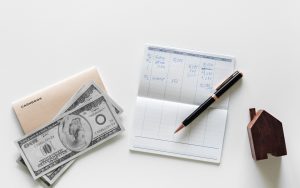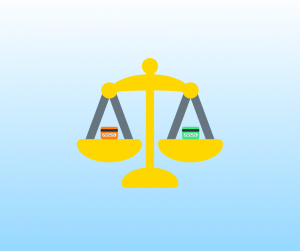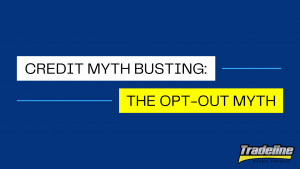Will These Strategies Help You Get More Credit Score Points?

When You Should NOT Be an Authorized User
01/21/2024
What to Do if You Can’t Afford Your Car Payment
02/09/2024 Everyone wants to get a higher credit score, but not all of the “hacks” or tips being promoted actually help you get more credit score points. In a Credit Countdown video on our YouTube channel, credit expert John Ulzheimer answers some common questions about ways to get more credit score points and sheds some light on which strategies hold merit and which ones are just myths.
Everyone wants to get a higher credit score, but not all of the “hacks” or tips being promoted actually help you get more credit score points. In a Credit Countdown video on our YouTube channel, credit expert John Ulzheimer answers some common questions about ways to get more credit score points and sheds some light on which strategies hold merit and which ones are just myths.
Disclaimer: The views and opinions expressed in this article are strictly those of John Ulzheimer and do not necessarily reflect the official stance or position of Tradeline Supply Company, LLC. Tradeline Supply Company, LLC does not sell tradelines to increase credit scores and does not guarantee any score improvements. Tradelines can in some cases cause credit scores to go down.
Do You Get More Points if You Pay Off Your Loans Early?
Although it might seem counterintuitive, paying off your loans early does not earn you more credit score points. When you pay off a loan early, nothing gets added to your credit report to show that you paid it off before the original term of the loan. Instead, your credit report simply shows that the balance of the account is now zero.
Getting to a zero balance may help your credit score slightly since credit scores consider the number of accounts with balances you have, but this does not have anything to do with the timing of when you pay off the loan.
Example
According to John, he knows of a consumer who had a truck loan and paid it off early because someone had told them that paying off their truck loan sooner would boost their credit score and this would help them refinance their mortgage to get a better deal.
Following this bad advice, the consumer even went so far as to take a loan out of their 401(k) retirement account in order to pay off the truck loan.
Unfortunately, the person’s credit score did not change at all as a result of paying off the truck loan.

Paying off an installment loan, such as a truck loan, early is unlikely to help your credit score since installment loans are fairly benign to your scores.
Why?
The reason why this strategy failed to help the person’s credit score is that the debt wasn’t even hurting their credit in the first place! The truck loan was an installment loan, and installment loans (unlike revolving credit) are virtually benign to your credit score. Since the account wasn’t actually bringing down the consumer’s credit score, getting rid of the debt had no effect.
Do You Get More Points if You Pay More Than the Balance?
This “trick” is supposed to make your credit score go up by paying more than the balance owed on a credit card account, giving you a negative balance.
While this may give you a “credit” on your credit card account, in credit reporting, there cannot be a negative balance associated with a credit card account. Whether you pay the balance in full or pay “extra” money, the account will report a zero balance to the credit bureaus, which will be reflected on your credit report.
Not only does this tip not help your credit score, but it also ties up your money in a place where it is not working for you by earning interest, and you have to buy things with your credit card in order to use the funds you put toward your card’s balance.
Paying your balance in full every month is always the best option because you can avoid paying interest and it helps your credit score—but there is no need to go overboard by paying a greater amount than what you currently owe.
Do You Get More Points if You Make Multiple Payments Each Month?

Paying more than what you owe on your accounts won’t get you more credit score points.
Some people recommend making multiple payments in a month as a way to give your credit score an extra boost. There is some truth to this recommendation, but it does not work in the way that proponents of this strategy often claim.
Usually, the thinking goes that by making multiple payments each month, you can “trick” the system into giving you more points, but that’s not how it works. You can’t “trick” the credit scoring system.
In reality, the credit scoring models do not indicate the number of payments you have made per month. They only show the total amount of all the payments you made during that month added together.
However, there is a different reason why this strategy may actually earn you a few extra credit score points.
When you make multiple payments within a billing cycle, you are paying down some of the balance before the statement closing date, which is when your account balance gets reported to the credit bureaus. Therefore, because of the early payments, the balance that gets reported to the credit bureaus will be lower. This could help boost your credit score by reducing the individual utilization ratio on that account as well as your overall credit utilization ratio.
You can read more about this “ethical credit hack” and others in our article, “Easy Credit Hacks That Will Actually Get You Results.”
Check out the Credit Countdown video on this topic below and let us know what you think in the comments!





